The Off-Balance Variety Show: June 2025.
Love lost, one night in Oakland and Tom Petty.
And here we are!
In Off-Balance tradition, here is a snapshot of what I watched, read, listened to and (mostly) enjoyed over the past month.
But if you missed it, recently, I had the pleasure to participate in the great ’s “These Three Things” series: discussing the intersection of my personal-creative journeys and just how they’ve brought me to where I am today.
You can find that piece here, though do be sure to check out what Lisa has on offer at more generally.
With a wholly unique, person-to-person approach and a nuanced look at creativity, culture, self-empowerment and life, in all its multi-faceted experience, her writing really is one-of-one.
As always, thanks for reading!
Until next time,
Ryan.
Movies
TV
Music
What’s Next?
Substack Spotlight
Who cares if I'm bad at video games?
,
,
,
,
Raymond & Ray (2022)
Upon learning that their estranged father (Tom Bower) has died, half-brothers Raymond (Ewan McGregor) and Ray (Ethan Hawke) reluctantly set out to pay their begrudging respects and to square away the last of his affairs.
Though in doing so, they find themselves crossing paths with those who knew him best in his final days, - be it his spiritual consul Reverend West (Vondie Curtis-Hall), nurse Kiera (Sophie Okonedo) or his lover Lucia (Maribel Verdú) - and come to see, with great frustration, that perhaps their father was more than the emotionally distant and abusive man that defined their childhoods.
Written and directed by Rodrigo García, Raymond & Ray, can feel pretty boilerplate in its opening stanza, as it steadily moves all of its pieces into place - with its raw storytelling, it isn’t necessarily doing anything new, per se (grief, rage, self-reflection, etc, etc) though as it settles in, García‘s script does find a surprisingly effective back-and-forth.
That, between the inherent dramatic beats present and the more absurdist yet very humanistic dark comedy that is the film’s bedrock: for as much as they wish to move forward, the brothers realize it will not be a task easily completed, caught between trauma and coping mechanism indifference as they are.
Forced to confront, one way or another, the men they want to be for the next stage of their lives.
To this end, each of the major characters are given room to breathe in a way that feels organic, not just in service to the brothers but to their own individualism.
Very much the tertiary protagonist, not just working in support, Verdú gives Lucia a more colourful edge but it doesn’t district from her journey prior, while McGregor and Hawke have a believable dynamic between them.
McGregor’s Raymond, having gone down a relatively more straight-laced path in comparison to his brother, yet each are fighting back against similar emotions and personal demons, albeit, which they express in very different ways: called on to deliver comedic and heavier emotional elements, both are up to the task, their performances, believable in that respect.
All that being said, in no way does Raymond & Ray escape its missteps: the dialogue is often wooden and can be poorly placed in key moments, the overall presentation, though purposefully subdued can feel choppy and lacking any feel for tighter character beyond the basics (be it costuming or staging) and ultimately, yes, the storytelling can’t wholly escape the feeling of “already seen” expectation it dances around but can never totally get off the floor.
Yet the performances are sharp and there is something almost universal that Raymond & Ray succeeds on showcasing, even if that impact is, ultimately, somewhat fleeting.
Rating: 6.7/10
Creed III (2023)
Long retired from the heavyweight circuit, though Adonis “Donnie” Creed (Michael B. Jordan) can’t deny the occasional pull to return to the ring, he has comfortably settled into his role as a promoter and trainer, alongside his wife Bianca (Tessa Thompson) and their young daughter Amara (Mila Davis-Kent).
But when an old friend from his childhood, Damian Anderson (Jonathan Majors) a former amateur champion recently released from prison resurfaces, demanding a title shot, in order to protect his future, Donnie realizes he must confront his past.
As the ninth total film in the Rocky franchise and with Creed II having already neatly concluded Donnie’s arc, right from the very beginning, III brushes up against that feeling of necessity.
And perhaps, in fairness, it is the reality of simply expecting too much, for on paper, Damian, as a character used to further flesh out Donnie’s past should work but there is absolutely no storytelling finesse present.
From the moment he appears on screen, even before the film’s obligatory flashback sequences fill in the blanks, it is painfully obvious not just where these characters have been but where they’re going too, to the detriment of everything built around those arcs, save the odd particular (Donnie and Bianca navigating parenthood and the representation shown there, with Amara being deaf, is a highlight).
While Jordan, in his directorial debut, is able to bring some spark to the in-the-ring sequences (particularly during the climax) the script, credited to co-writers Zach Baylin and Keenan Coogler, never once gets off the ground: radiating deep predictability with nothing of real value to show for it.
Now, is that to say the prior two films (really, all sports films) weren’t tinged with that, in a similar way? Not at all.
But they did have a strong confidence regardless, in their narrative presentation, in their character work and the larger story they chose to tell, in steadily expanding the franchise beyond its Sylvester Stallone-led confines.
In comparison, Creed III feels born out of contractual obligation more than anything else.
Phylicia Rashad has some heftier beats but Thompson, regrettably, seems wasted, Jordan can often feel as though he’s going through the motions and Majors is one-note front-to-back with no deviation whatsoever (while seeing, inevitably, his real-world persona bleed through, following the still-in-hiatus status of his career in the wake of his misdemeanour assault charge in 2024).
Jordan has spoken about eventually returning for a fourth outing and yes, while the baseline excitement for more Rocky/Creed films will (for the most part) usually win out, there must be a stronger focus if/when they do - something that was almost entirely absent here.
Rating: 5.2/10
Touch (2024)
As the world grapples with uncertainty in the earliest days of the COVID-19 pandemic, Kristófer (Egill Ólafsson), a reserved man finding himself too often at the mercy of a failing memory, decides to set out from his home in Iceland: this, on an odyssey to reconnect with both the most joyous and painful parts of his past.
Fifty years earlier, as a young man living in London, Kristófer (played here by Palmi Kormákur) leaves university over a difference of political opinion and begins a job as a dishwasher, in a local Japanese restaurant.
Quickly immersing himself, Kristófer diligently learns Japanese and eventually begins training as a chef under the watchful eye of owner Takahashi (Masahiro Motoki), who takes the quiet Icelander under his wing.
But as he grows closer to Takahashi’s daughter Miko (Kōki), they both soon realize that even the most romantic of love stories, they don’t always have happy endings.
Practically, Touch isn’t hitting on any one particular strand of distinction, given the romantic-drama mold it choses to work with. The film then, directed by Baltasar Kormákur and co-written by Kormákur alongside Ólafur (while being an adaption of Ólafur’s same-named novel), primarily stands out by way of its non-linear structure.
Moving between both its past and its present settings as needed, it never feels as though it is straining against its own as-established confines or lacking momentum.
To be delivered chronologically, it would mean surrendering to a certain measure of predictability, something it mostly avoids until the final third, when, inevitably, all its pieces fall into place: the lion’s share of its focus, it is on Kristófer and Miko, at different points in their lives.
Knowing that if they cannot find resolution, then they will search for some semblance of peace.
The production-driven details, both as a period piece and within the 2020-era portions of the film are strong, as young Kristófer and Miko, Kormákur and Kōki have great chemistry (with Kōki’s performance specifically, being the film’s best), while as an older Kristófer, Egill Ólafsson is quiet and understated to effect: having burdened himself with unspoken heartache for decades, only to conclude, as he faces down his own morality, that it will no longer define him.
Touch may not do anything new necessarily, given its set-up but bound by such emotional conviction in its storytelling, it is a film of noted memorability, standing well apart from genre convention.
Rating: 8.4/10
Freaky Tales (2024)
In May of 1987, while most in Oakland are eagerly watching their beloved Warriors in the NBA playoffs, throughout the East Bay, the Dubs aren’t the only ones fighting for the upper hand.
Be it a corrupt cop (Ben Mendelsohn), an on-the-edge-of-retirement crime enforcer (Pedro Pascal), punk rockers (Ji-young Yoo and Jack Champion) pushing back against Neo-Nazi bigots or local rap duo, Danger Zone (Dominique Thorne and Normani), who are determined to make their names known.
But following a robbery at the home of Warriors guard Sleepy Floyd (Jay Ellis), it becomes clear that Oakland is bound together by more than just city pride - a most unusual undercurrent, that courses through each of its individual stories.
Not quite a proper anthology film but not presenting a single unifying narrative either, Freaky Tales, co-written and directed by the duo of Anna Boden and Ryan Fleck, clearly boosts the necessary enthusiasm to present its many ideas and storytelling nodes yet it lacks the skill to actually elevate them, moment-to-moment.
Little emotional investment (with one exception), inconsistent pacing betraying a supposedly crisp runtime or a narrative that buckles, particularly come the third act, in actively tying all of its loose threads together with any sense of weight.
And yet, while most films would be promptly sunk by such half-hearted fundamentals, though Freaky Tales is in no way immune, on the reverse, it is understood that it isn’t really shooting for those benchmarks in the first place.
Instead, it is a purposely over-the-top grindhouse throwback and to judge it on that basis alone is the only proper course, as it oozes pulp, action artistry and a genuine love for its setting.
The punks, staging revolution at Gilman, the real Sleepy Floyd, who openly supported the film, watching as his career-best performance (that Game 4 win in the ‘87 semis against LA, where he put up 51 points, 29, in the fourth quarter) is fictionalized, to effect, in service of the larger story or Too $hort, seemingly omnipresent; the Oakland rapper narrates the film (with a brief cameo to boot) while a fictionalized version of himself (Demario Driver) has a prominent role in the second act, as do a handful of other well-known names from throughout The Bay.
Forty years ago, Freaky Tales would’ve been a film quickly anointed the king of the midnight screening - crowds, decked out in vintage Warriors gear, belting out each word to the featured Operation Ivy tracks or timing call-and-responses to every burst of colourful, campy violence.
Here and now however, while that may not be the case, such energy remains regardless, a clarity that is carried throughout.
A cult classic in waiting that is, if nothing else, an explosive good time.
Rating: 7.2/10
Echo Valley (2025)
At something of a crossroads following a series of personal tragedies, horse trainer Kate (Julianne Moore) also finds herself struggling to maintain a healthy relationship with her daughter, Claire (Sydney Sweeney), an aimless drug addict, who often, maliciously so, appeals to her mother’s better nature.
But one night, after Claire arrives home covered in blood that is not her own, Kate must come to terms with just how far she is willing to go, in her stated aim to keep Claire safe, whatever the cost.
And right from the jump, Echo Valley, (directed by Michael Pearce and written by Brad Ingelsby) which released earlier this month, hits all the notes expected of a film that positions itself as a physiological thriller, even if the execution, broadly, is lacking: rote, lifeless dialogue, bog-standard staging and presentation, with nothing, besides some genre-indebted stylistic choices to give it any visual character and a sense of pace that languishes for far too long.
Now, all that being equal, the film is saved, to an extent, by a handful of storytelling twists and the quality of its performances both, that each do their part to carry it over the finish line.
Though Domhnall Gleeson feels miscast as a short-tempered drug dealer, propped up more by narrative need than character acumen, Fiona Shaw is solid in support, even if most of the focus is placed on the the film’s two leads.
While Sweeney’s character is all but irremediable from the minute she appears on screen, her dynamic with Moore ties back into what the movie is angling for thematically and it does land with the intended impact. The cost of that unconditional love Kate practices and how she suffers for it, one way or another, next to the emotional and psychological abuse her daughter both purposefully and unintentionally inflicts.
And perhaps then, that is Echo Valley in summary: with weight in the moment but with nowhere near enough to last beyond the closing credits.
Rating: 5.7/10
Ted Lasso (Seasons 1-3) (2020-2023)
When Rebecca Welton (Hannah Waddingham) picks Ted Lasso (Jason Sudeikis), a supposedly out-of-his-depth American football coach to lead her Premier League outfit, London’s AFC Richmond, the prognosis from most is dead-on-arrival: he lacks any serious knowledge regarding the sport’s fundamentals, doesn’t seem culturally suited and is openly mocked for his can-do spirit.
Undeterred, Lasso, alongside his right-hand man Coach Beard (Brendan Hunt), insists on proving that measuring success in wins and ties alone is not the only way, through his relentlessly positive, lifting-people-up approach.
Though alongside what becomes something of a quasi-found family: next to assistant coach Nate (Nick Mohammed), veteran player Roy Kent (Brett Goldstein), PR dynamo Keely (Juno Temple) or star players Jamie Tartt (Phil Dunster) and Sam Obisanya (Toheeb Jimoh), Ted and Rebecca both come to learn that, sometimes, it is okay to cry too.
Perhaps Lasso’s greatest strength then, over its three seasons thus far, is finding that balance.
Yes, it is very much a comedy moment-to-moment (unlike say, The Bear) but it isn’t afraid to veer into drama when needed, as well, particularly when looking to spotlight its heavier thematic pillars.
Be it the importance of mental health consideration, the examination of masculinity (vulnerable and toxic both) in modern athletics, women in power carving their own way forward in male-dominated industry or the simple fact that building connections, friendships, should be championed, not belittled.
And when it hits those notes, alongside the on-the-pitch action of it all and bolstered by the award winning capability of its ensemble, there are few shows that can match Lasso’s skill at being both sweet and sentimental without feeling manipulative or poorly conceived.
Predictable often, it is true, in its raw storytelling chops but feeling incredibly well-earned all the same.
It does hit the odd wall in its third season, it is true, though it could be argued it is not through poor execution but more the reality of pre-established creative limitations.
The supposed final season when it originally aired, understandably then, wanting to spotlight each member of its large cast in earnest - thereby caught between a bevy of subplots and thematic underpinnings, even as, when it mattered most, it stuck the landing.
But officially renewed for a fourth season earlier this spring, whenever Lasso returns to the pitch, no doubt it will be with that as-expected optimism in hand.
Albeit, with a high bar to clear.
Ted Lasso, Seasons 1-3, overall rating: 8.3/10
Full Moon Fever (Tom Petty) (1989)
Already eight years this fall since his death, it could very well be argued that Tom Petty’s hold on his particular brand of rock remains just as strong as it ever was.
And while 1989’s Full Moon Fever is, technically, his first solo album, it features noted input from his Heartbreakers collaborators (though with the noted exception of drummer Stan Lynch1), creating a solid feeling of connectivity between those projects, even if the name says otherwise.
Crisp, instantly recognizable and with a confidence so prominent, it is almost physical. At just twelve tracks, Full Moon Fever doesn’t feel bloated or straining for the listener’s attention: instead, it is nigh-effortlessly timeless.
Copper Changes Color (Caamp) (2025)
Nearly a decade since their debut album, Caamp, the folk-pop group have steadily cultivated and expanded upon their sound.
And with their newest album, Cooper Changes Color, which released earlier this month, it is, for better or worse, to see that evolution crystallized.
Now, that doesn’t mean the album is without merit (Millions and Porchswing are standouts) but three years since their previous effort, 2022’s Lavender Days, Cooper Changes Color feels totally interchangeable with what came before. That easy-listening, summertime sound that the band has hit on prior but completely lacking the more raw, sonic and lyrical experimentation that was the calling card of their earliest work (and to a lesser extent, present in their 2019 breakout, By & By).
The group, it is clear, has found their groove: one that will, absolutely, lighten up those early July blues but with hardly anything to be said for longterm staying power beyond that.
Theirs, a record that will quietly be tucked away on the shelf, once the leaves begin to turn.
Rating: 6.0/10
Dexter: Resurrection (2025)
Well, if it didn’t work the first time, try, try again.
After the previous Dexter revival/sequel series, New Blood, ended with Dexter (Michael C. Hall) having his son Harrison (Jack Alcott) supposedly kill him, in penance for his crimes, the opening moments of 2024’s prequel series, Original Sin, revealed that yeah, it didn’t quite take: Dexter is both alive and very much back in business.
Though as The Bay Harbour Butcher travels to New York City to find Harrison in the next sequel series, the aptly-named Resurrection, not only does he become entangled in the social web of other serial killers prowling the boroughs, he finds his old friend from Miami, Angel Batista (David Zayas), in hot pursuit: Angel, picking up another New Blood thread, in finally having learned the truth of his former colleague’s double life.
And while neither the original series nor New Blood could stick the (bloody) landing, there is the hope that, even if Resurrection can’t either, it will at least have some fun in attempting to do so.
Resurrection debuts July 11th.
The Witcher IV (TBA)
It seems time heals most wounds after all.
While 2020’s Cyberpunk 2077 was beset with one of the infamously chaotic launches in recent video game history, to their credit, developer CD Projekt Red worked diligently, in time, to bring the game up to their as-established standard.
But eventually, the sun rose on Night City, even with a sequel, as announced, entering pre-production this spring.
Looking forward, either way, it meant returning to their other flagship title, The Witcher series, now a decade on from The Witcher 3.
And while caveats abound naturally, with any slice of curated gameplay, especially a tightly scripted tech demo, as CD Projekt dropped at the State of Unreal event earlier this month, as Ciri (Ciara Berkeley) steps fully into the spotlight as the titular monster hunter, the easy money would be on the game following on the same path of (eventual) acclaim as its predecessors did.
Perhaps in an effort however, to avoid another at-launch Cyberpunk catastrophe, just when that will be isn’t known just yet, with prior reporting suggesting a 2027 release, at the earliest.
Until then? Next to cautious optimism, the anticipation builds.
Substack Spotlight
There are many wonderful writers, out there in the wild but specifically so, here on Substack.
In that spirit, here are a few articles I really enjoyed this past month, including some from valued members of the Off-Balance community.
Do feel free, if you haven’t already, to expand your horizons and check out what they have on offer.
“Who cares if I'm bad at video games?”
,
As the difficulty curve discourse has, frustratingly, enveloped gaming whole over the past few years, Katya’s piece serves as a terrific antidote. A reminder that succumbing to that noise, it will only carry as much weight as any one player allows.
Katya captures this, that clash, between the forever-to-be-unfair outside expectation and the medium’s inherent push for self-expression, though alongside the most important thing: having fun.
Because ultimately? That’s all that really matters.
You can find Katya at .
“Symposium in the trenches”
,
With a keen eye for detail, world-building and character contrast, despite the inherent brevity present in the short story space, with this piece, Alessia brings a small slice of wartime to immediate and present life.
And while her primary focus is on film, recently, Alessia has expanded her content offerings to include poetry and short stories as well, a strong and varied mix perfect for those looking for a fresh approach to all three.
You can find her at .
“That’s Not My Mother”
,
From the personal to the professional, with this piece, Amanda lays out the journey she embarked on, in bringing her short film, That’s Not My Mother to life - from sourcing material, to scouting locations, to well, being a filmmaker in a genuinely actionable way.
And while, naturally, it speaks most prominently to the filmmaker and filmmaker-adjacent, Amanda’s account has noticeable power from a larger creative point-of-view: the ups-and-downs, the emotional trials of building towards that success, hard-won as it can be at times… though worthwhile all the same.
You can find her at .
“I Hate My Own Work”
,
For those who operate in any creative space, there is one truth which remains as universal as it is unfairly maddening - the harshest critic, always, will be oneself.
Yet as Lindsey tracks her experiences with this most unwelcome phenomenon, the relatability is immediately apparent. The fear, the uncertainty, as she puts it, that can come to overpower the drive to be artistically expressive in the first place.
But equally so, the strength of Lindsey’s writing - the clarity, the honesty - is undeniable, a beacon to any creative possibly struggling to maintain their voice: for to impact just one, it can change the world.
You can find Lindsey at .
Famously, Lynch made no secret of his displeasure playing Petty’s increasingly popular solo work in Heartbreakers concerts and would eventually leave the group, amid tensions, in 1994. Speaking in 2022, he expressed a measure of regret for how things ended.


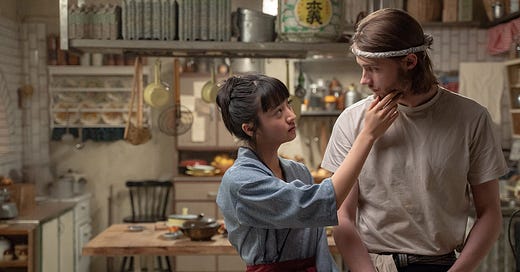


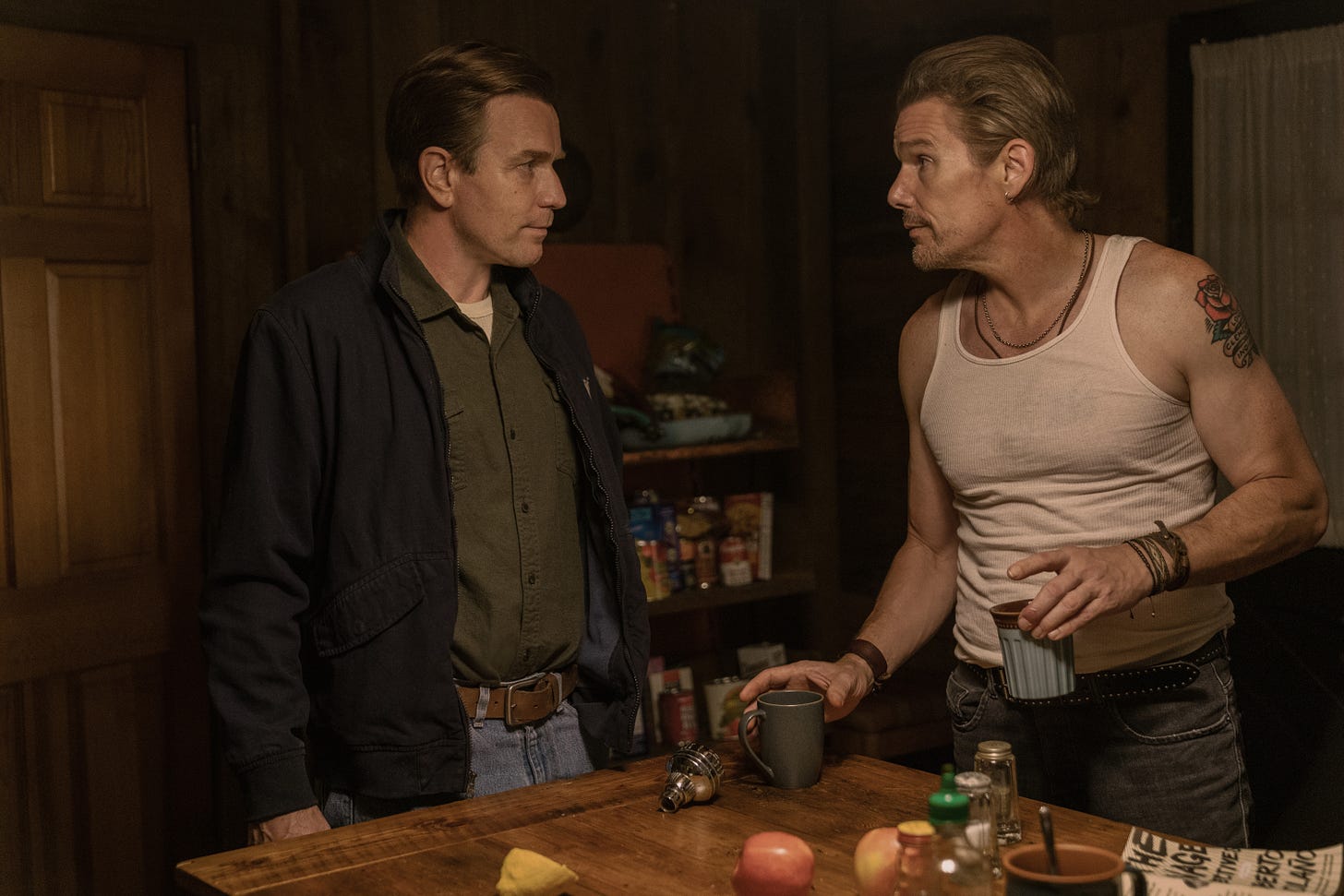

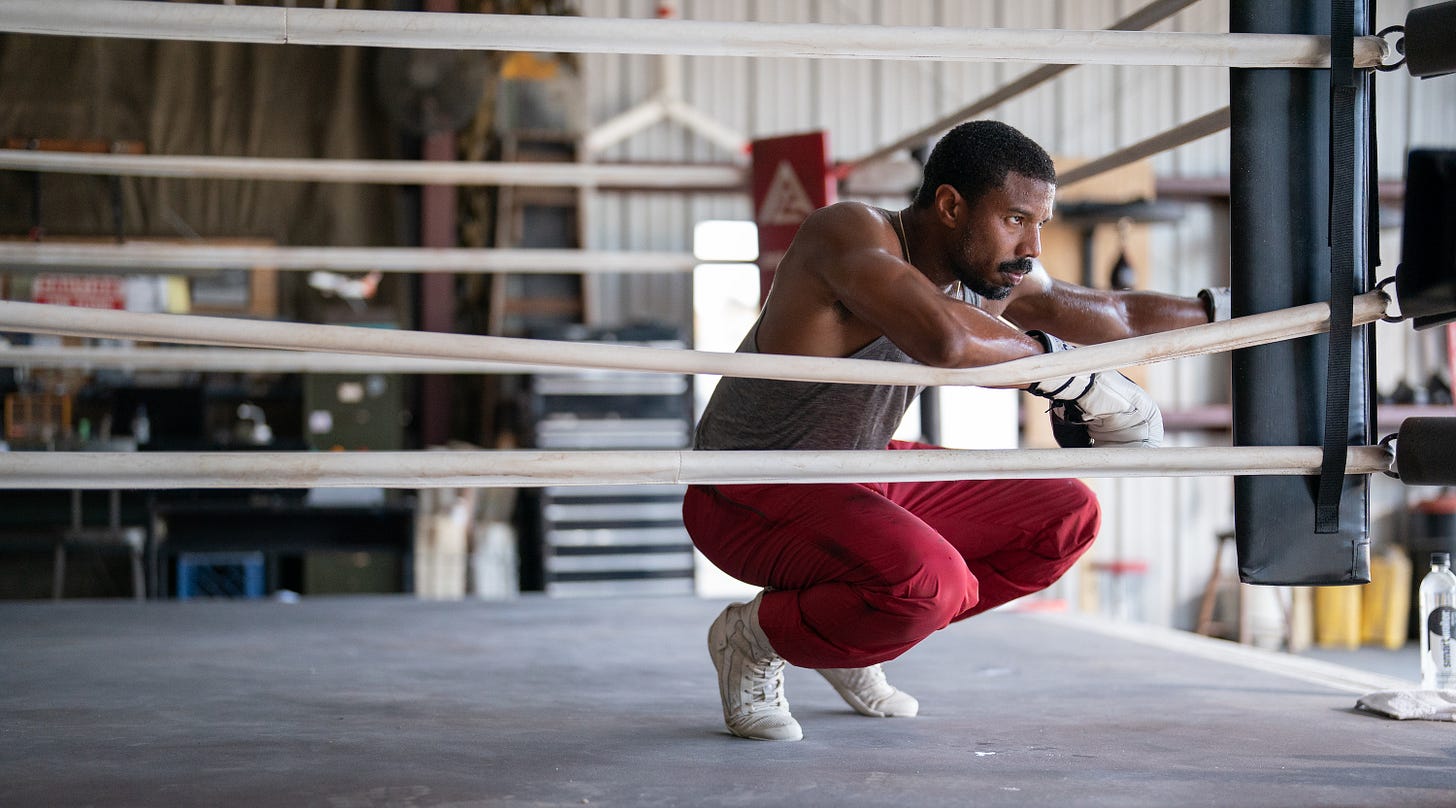



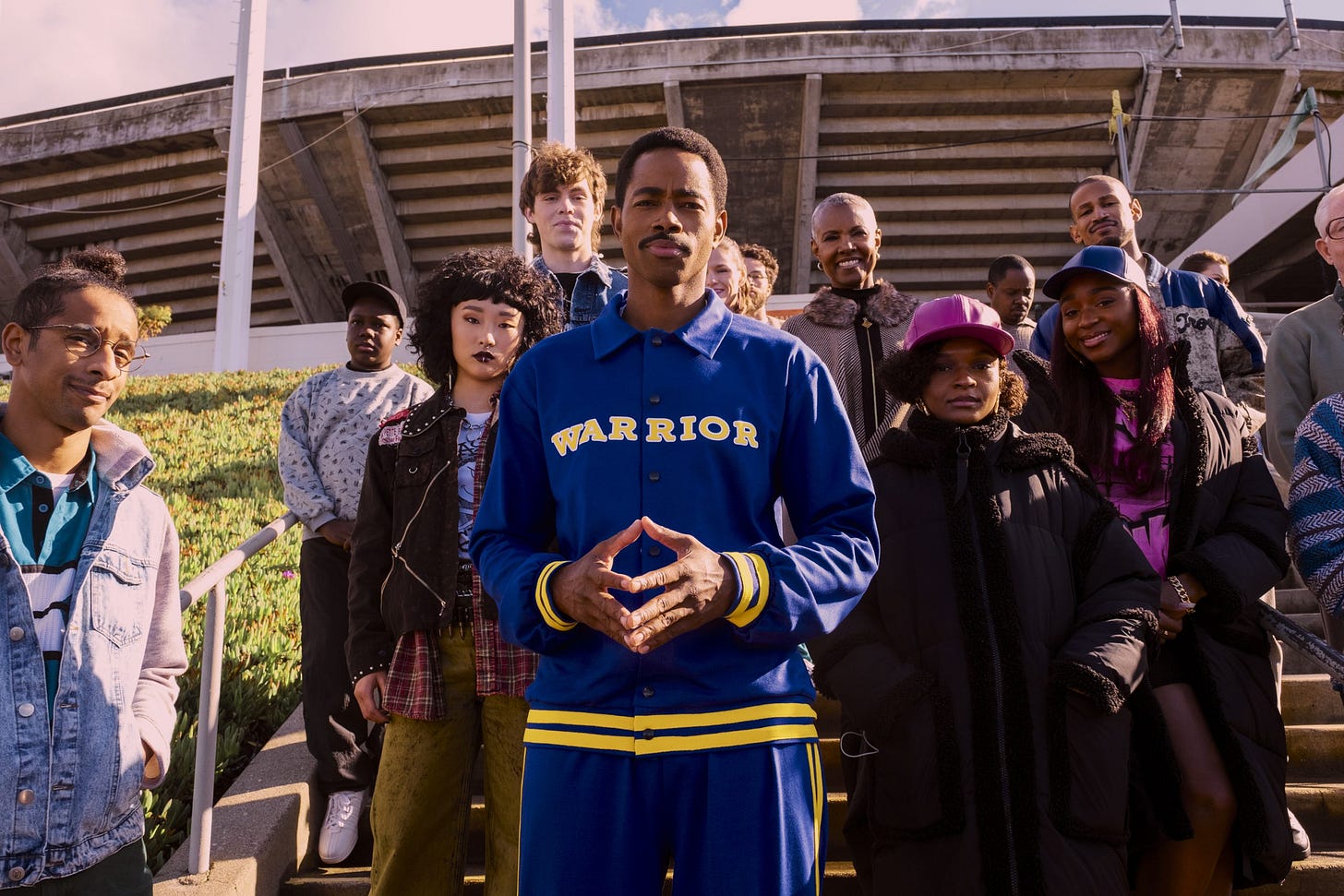
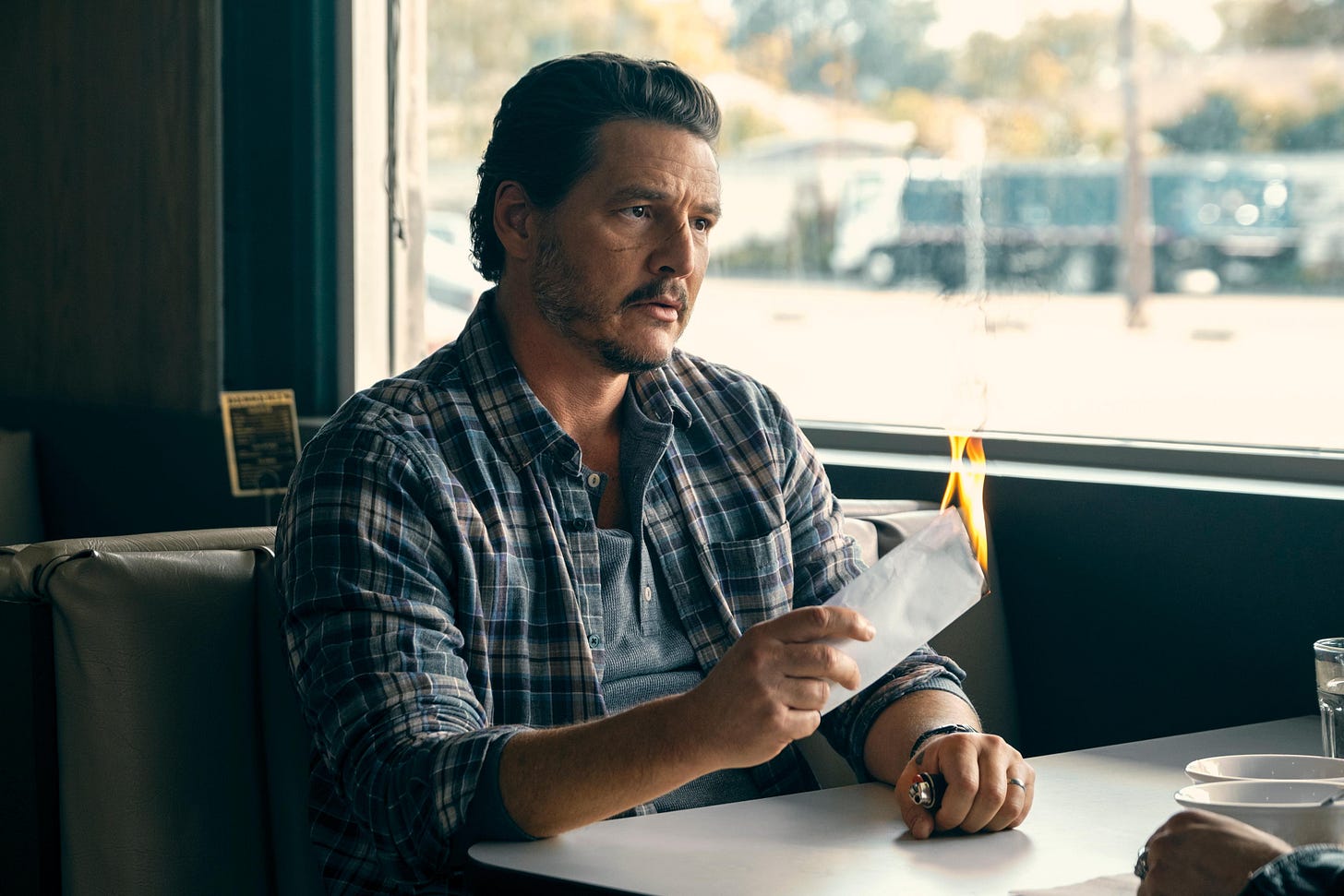

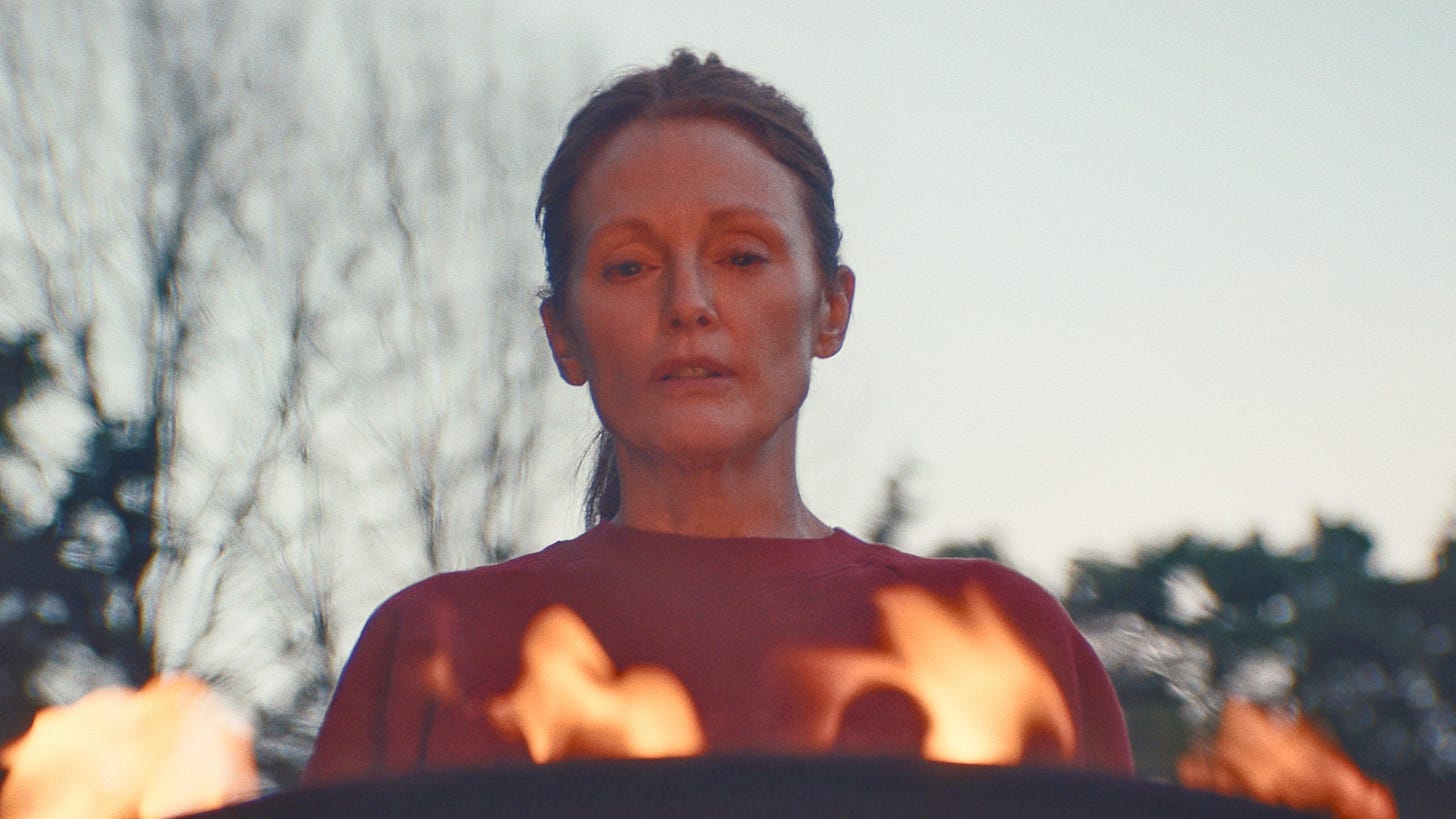
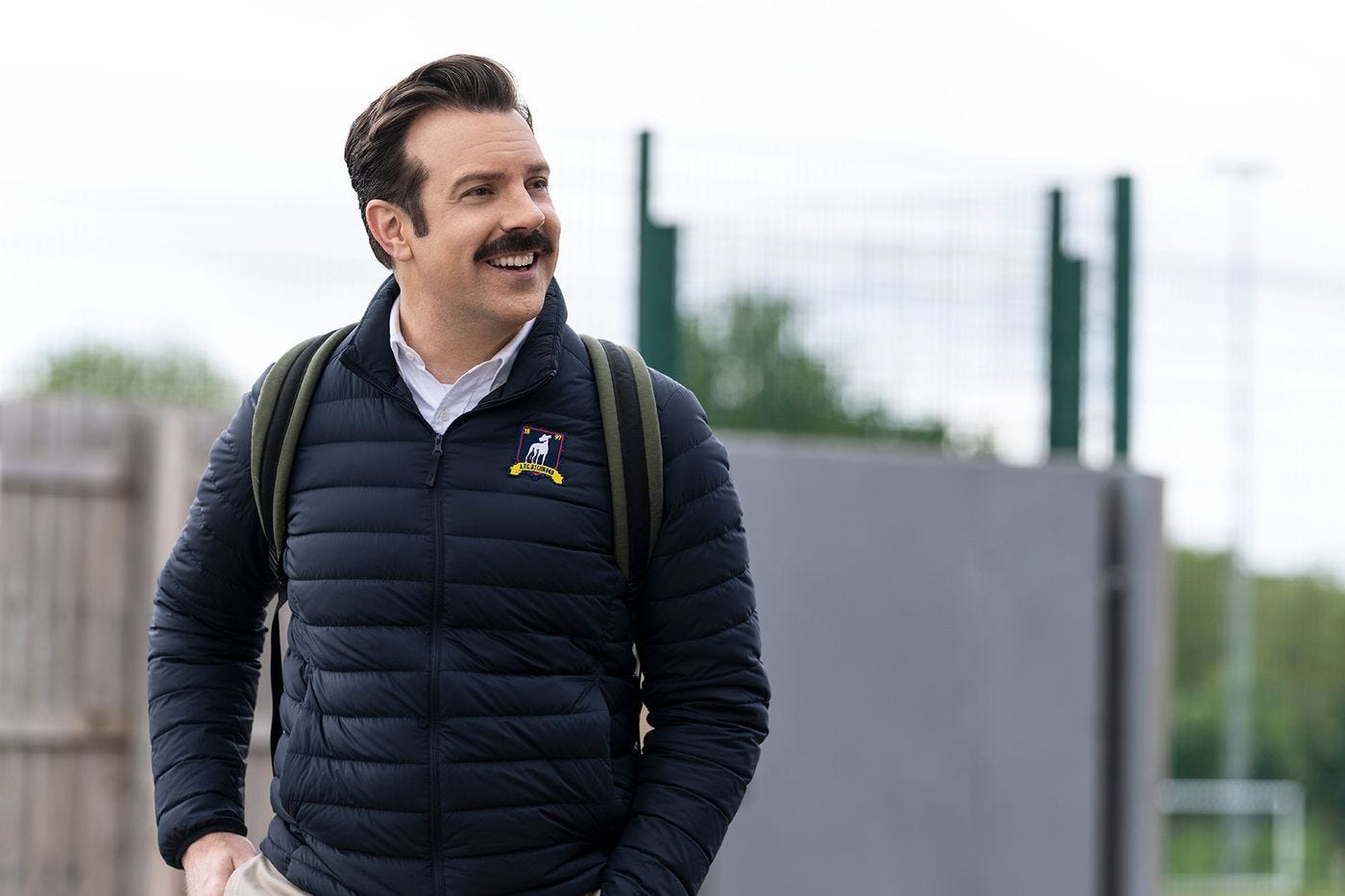





Ryan, reading your piece made my day, and you including me in it is not the only reason why! Thank you, genuinely.
thank you, ryan. this is so kind of you and i really appreciate you sharing my piece and adding such thoughtful commentary to it. i hadn't really considered some of how you framed it, so that rocks.